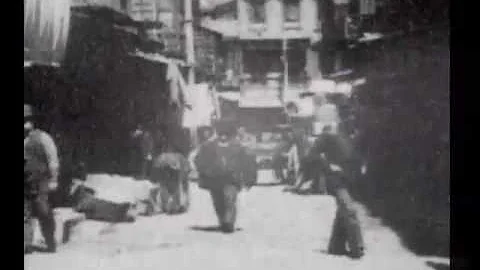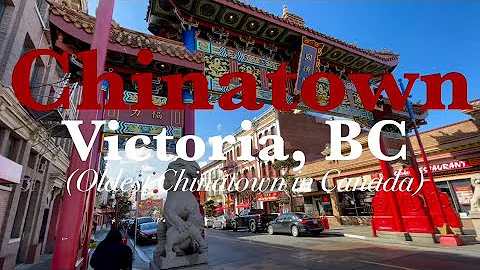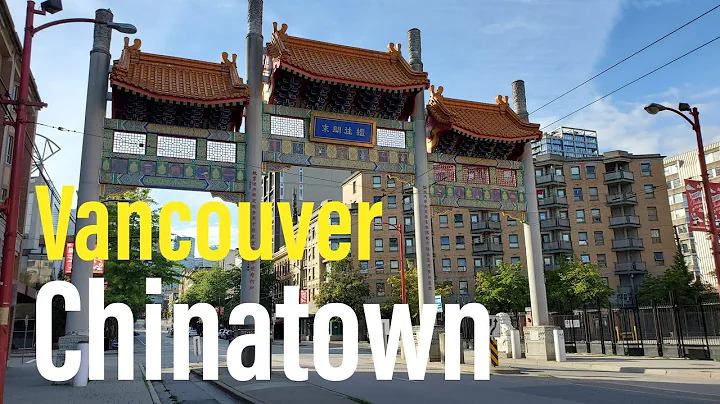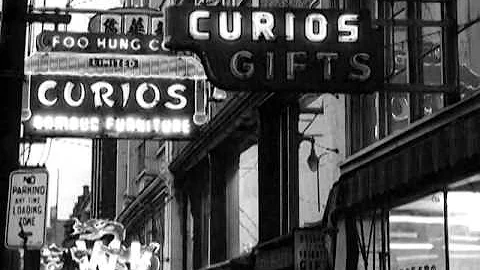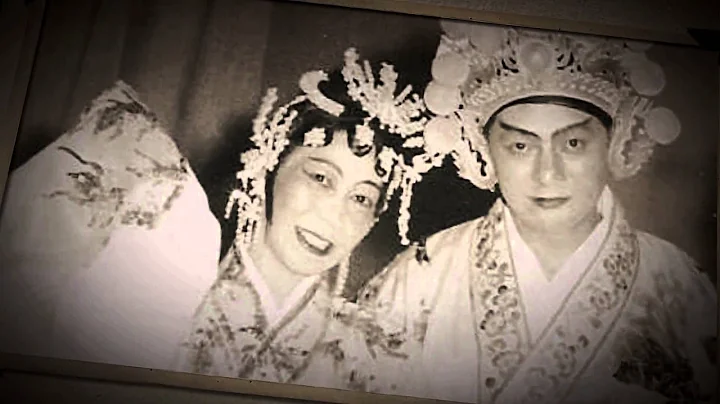![[Chinatown Street Scene] In what is now known as Canada, the earliest record (about the Chinese) was in 1788. At that time, a mutinous British captain (James Meares) hired more than seventy Macau Chinese laborers and settled them in Nootka Sound on Vancouver Island, British Colum - DayDayNews](https://cdn-dd.lujuba.top/img/loading.gif)
[Chinatown Street Scene] In the land now known as Canada, the earliest record (about the Chinese) was in 1788. At that time, a mutinous British captain (James Meares) hired more than seventy Macau Chinese laborers and settled them in Nootka Sound on Vancouver Island, British Columbia, which was then a European outpost on the Pacific coast.
![[Chinatown Street Scene] In what is now known as Canada, the earliest record (about the Chinese) was in 1788. At that time, a mutinous British captain (James Meares) hired more than seventy Macau Chinese laborers and settled them in Nootka Sound on Vancouver Island, British Colum - DayDayNews](https://cdn-dd.lujuba.top/img/loading.gif)
【Chinatown Street Scene】However, no relevant documents and information about the whereabouts and possible descendants of this group of early Chinese have survived. In 1858, a group of Chinese immigrated to British North America. At that time, most Chinese were "sojourners" to some extent, and they all wanted to return to their hometown after working in British North America for a period of time.
![[Chinatown Street Scene] In what is now known as Canada, the earliest record (about the Chinese) was in 1788. At that time, a mutinous British captain (James Meares) hired more than seventy Macau Chinese laborers and settled them in Nootka Sound on Vancouver Island, British Colum - DayDayNews](https://cdn-dd.lujuba.top/img/loading.gif)
【Chinatown Street Scene】Most of them are farmers from the lower class of society in Guangdong Province. Most come to British Columbia to work as ordinary laborers, and their employers only pay them some vouchers (vouchers), so they are effectively imprisoned by the companies that import the labor. The gold rush within British Columbia subsequently also attracted a large number of Chinese to the area.
![[Chinatown Street Scene] In what is now known as Canada, the earliest record (about the Chinese) was in 1788. At that time, a mutinous British captain (James Meares) hired more than seventy Macau Chinese laborers and settled them in Nootka Sound on Vancouver Island, British Colum - DayDayNews](https://cdn-dd.lujuba.top/img/loading.gif)
[Chinese Wedding Photos] In the 19th century, many Chinese workers from Fujian and Guangdong helped build the Canadian Pacific Railway. Compared with non-Chinese workers, these workers are more likely to accept discriminatory working hour systems, low wages, and dangerous working conditions (such as mountain blasting) in order to support their families in their hometowns.
![[Chinatown Street Scene] In what is now known as Canada, the earliest record (about the Chinese) was in 1788. At that time, a mutinous British captain (James Meares) hired more than seventy Macau Chinese laborers and settled them in Nootka Sound on Vancouver Island, British Colum - DayDayNews](https://cdn-dd.lujuba.top/img/loading.gif)
[Student Graduation Photo] The willingness of Chinese workers to endure low wages and poor working conditions has angered some non-Chinese workers, who believe that Chinese workers have disrupted the labor market. The passage of the Chinese Immigration Act in 1885 authorized the Canadian government to begin collecting a head tax from Chinese immigrants to Canada. At the time, the Chinese were the only ethnic minority forced to pay the tax.
![[Chinatown Street Scene] In what is now known as Canada, the earliest record (about the Chinese) was in 1788. At that time, a mutinous British captain (James Meares) hired more than seventy Macau Chinese laborers and settled them in Nootka Sound on Vancouver Island, British Colum - DayDayNews](https://cdn-dd.lujuba.top/img/loading.gif)
[Chinese performance photos] In 1923, the federal Liberal government of William Leon Mackenzie King completely banned Chinese immigration through the Chinese Immigration Act of 1923. The Chinese have since become the only ethnic group that Canada refuses to admit. Over the next 25 years, more and more Chinese exclusion laws were passed, and most jobs were closed to Chinese, so many Chinese started their own restaurant and laundromat businesses.
![[Chinatown Street Scene] In what is now known as Canada, the earliest record (about the Chinese) was in 1788. At that time, a mutinous British captain (James Meares) hired more than seventy Macau Chinese laborers and settled them in Nootka Sound on Vancouver Island, British Colum - DayDayNews](https://cdn-dd.lujuba.top/img/loading.gif)
[Chinese family photos] Some Chinese Canadians settled in Canada after the railway was built. But due to strict government restrictions and heavy fees, they are unable to bring their families to Canada, and even their contact with non-Chinese people has various official and private restrictions. This has led to the establishment of a large number of Chinatowns and Chinese communities in distressed areas of many cities.
![[Chinatown Street Scene] In what is now known as Canada, the earliest record (about the Chinese) was in 1788. At that time, a mutinous British captain (James Meares) hired more than seventy Macau Chinese laborers and settled them in Nootka Sound on Vancouver Island, British Colum - DayDayNews](https://cdn-dd.lujuba.top/img/loading.gif)
[Student Group Photo] Since Canada signed the United Nations Universal Declaration of Human Rights after World War II, in order not to conflict with it, the Canadian government must repeal the Chinese Exclusion Act. That same year, 1947, Chinese Canadians finally gained the right to vote in federal elections. Many educated Chinese came to Canada as refugees during the war.
![[Chinatown Street Scene] In what is now known as Canada, the earliest record (about the Chinese) was in 1788. At that time, a mutinous British captain (James Meares) hired more than seventy Macau Chinese laborers and settled them in Nootka Sound on Vancouver Island, British Colum - DayDayNews](https://cdn-dd.lujuba.top/img/loading.gif)
[Commemorative photo of the association] Before the rise of Toronto in the 1970s, the city had always been the city with the largest number of Chinese people and the largest number of associations. Vancouver Chinatown is also one of the most famous Chinatowns in the world. Its size is second only to Chinatown in San Francisco, USA, and ranks second in North America. [Vancouver Chinese, 1940s-1950s. Information: Vancouver Archives】
